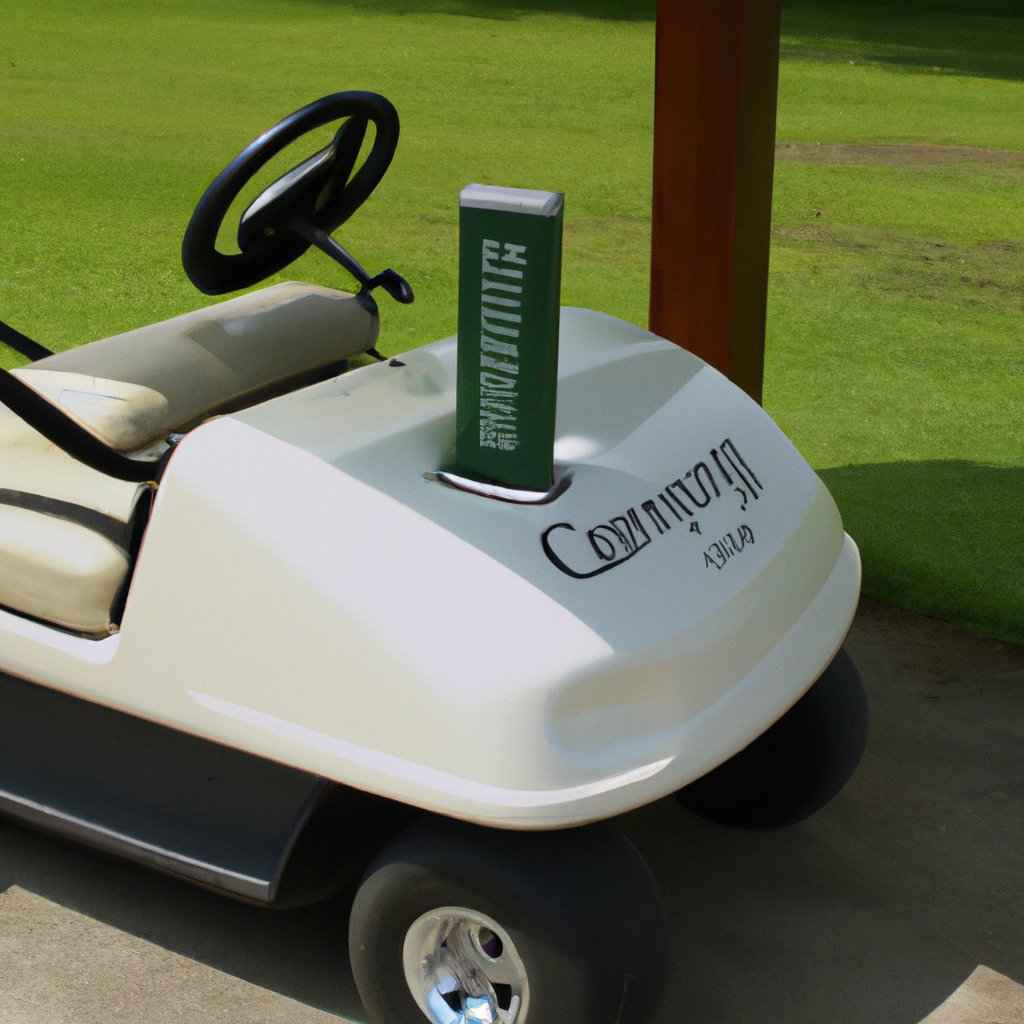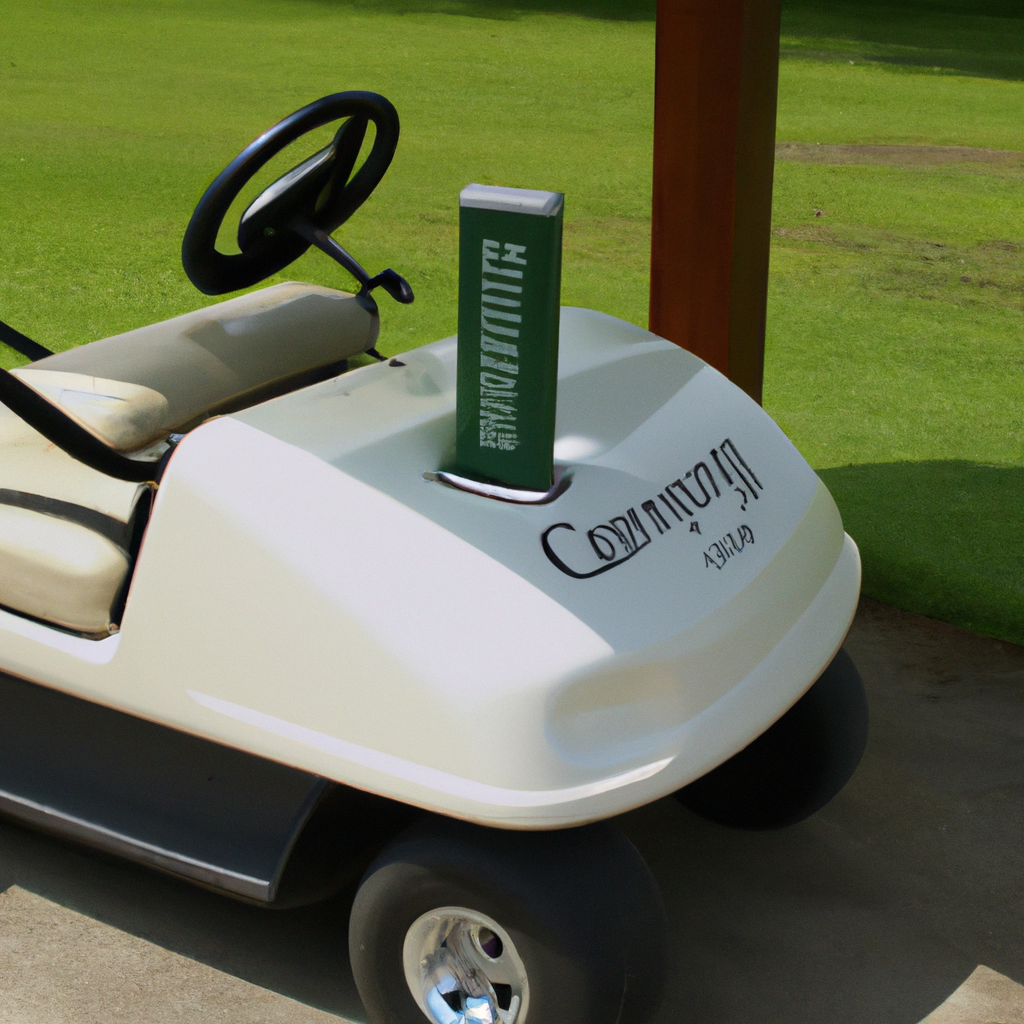Are you curious about how long it takes to golf nine holes? Well, you’re in luck! In this article, we’ll be exploring the average time it takes to complete a round of nine holes on the golf course. Whether you’re a seasoned golfer or just starting out, understanding the time commitment involved can help you plan your day and make the most of your golfing experience. So, let’s grab our clubs and tee off into the world of golfing time!

Factors that Affect the Average Time to Golf Nine Holes
Course Difficulty
One of the major factors that can impact the average time it takes to golf nine holes is the difficulty level of the course. A more challenging course with narrow fairways, numerous hazards, and complex greens can significantly slow down play. Golfers may need to spend more time searching for their balls, strategizing their shots, and carefully reading the greens. On the other hand, an easier course with wide fairways and fewer hazards can allow for a quicker pace of play.
Golfer Skill Level
The skill level of the golfers also plays a crucial role in determining the average time to golf nine holes. Beginners typically require more shots to reach the green and may struggle with accuracy, which can lead to longer play times. Intermediate players may have better control over their shots and a clearer understanding of the game, resulting in a slightly faster pace. Advanced golfers, with their expertise and experience, usually have a faster pace of play due to their ability to hit accurate shots consistently.
Course Traffic
Course traffic refers to the number of players on the course at any given time. Naturally, the more crowded the course is, the longer it will take to complete nine holes. Waiting for other players to finish teeing off, hitting their approach shots, or even searching for lost balls can significantly slow down the pace of play. Courses with high demand or peak hours are more likely to experience heavy traffic and, consequently, slower play.
Group Size
The size of the group you are playing with can also impact the average time it takes to complete nine holes. Larger groups typically require more time per hole, as there are more shots to be played, more conversations to be had, and more decisions to be made collectively. Smaller groups or individuals often have a faster pace of play, allowing for a smoother and more efficient round.
Weather Conditions
Weather conditions, such as rain, wind, or extreme heat, can also influence the average time to golf nine holes. Inclement weather can force golfers to take extra precautions, slow down their shots, or even suspend play temporarily. For example, strong winds can make it challenging to control the trajectory and distance of shots, leading to longer play times. Similarly, heavy rain may require golfers to seek shelter or wait for better conditions, further delaying the round.
Average Time to Golf Nine Holes for Different Skill Levels
Beginners
For beginners, the average time to golf nine holes can vary widely depending on their individual progress and comfort level on the course. On average, it may take beginners approximately 2 to 2.5 hours to complete a round of nine holes. However, this estimate may fluctuate based on factors such as course difficulty, group size, weather conditions, and familiarity with the game. As beginners become more proficient and gain more experience, their pace of play is likely to improve over time.
Intermediate
Intermediate golfers typically have a better understanding of the game and exhibit a higher level of skill compared to beginners. As a result, their average time to golf nine holes tends to be slightly faster. On average, intermediate players can complete a round in approximately 1.5 to 2 hours, depending on the same factors mentioned earlier. Practice, dedication, and consistent play can help intermediate golfers speed up their pace and further reduce the time it takes to finish a round.
Advanced
Advanced golfers are known for their efficiency, accuracy, and ability to navigate the course with ease. They have honed their skills and have a deep understanding of the game, allowing them to execute shots quickly and make strategic decisions swiftly. As a result, advanced golfers can typically complete a round of nine holes in about 1 to 1.5 hours. Their ability to play efficiently while maintaining a high level of performance is a testament to their expertise and experience on the golf course.
Strategies to Improve Pace of Play
Preparation before Teeing Off
One effective strategy to improve the pace of play is to ensure proper preparation before teeing off. Arriving at the course early allows you to warm up, practice your swings, and mentally prepare for the round. It also gives you enough time to check-in, organize your bag, and gather any necessary equipment or supplies. By being fully prepared, you can start your round promptly, minimizing any unnecessary delays.
Efficient Shot Planning
Another key strategy to improve the pace of play is efficient shot planning. Before taking any swing, carefully assess the hole, determine the optimal shot strategy, and visualize your intended target. By planning your shots in advance, you can reduce indecision on the course and maintain a steady pace of play. This includes selecting the appropriate club, considering any hazards or obstacles, and taking into account the wind or weather conditions.
Ready Golf Approach
Adopting a ready golf approach is a fantastic way to expedite play. Ready golf encourages golfers to play when ready, regardless of honors or player placement. Instead of waiting for the golfer furthest from the hole to play, ready golf encourages you to take your shot as soon as you are prepared. This approach can significantly reduce waiting time and keep the flow of the game moving smoothly.
Avoiding Unnecessary Delays
To improve pace of play, it is important to avoid unnecessary delays during a round. Limiting the time spent searching for lost balls, keeping conversations brief, and refraining from excessive practice swings can all help expedite play. Additionally, being mindful of your group’s position on the course and keeping up with the group ahead can prevent unnecessary gaps from forming, ensuring a more efficient round for everyone.
Keeping Score
While record-keeping is an essential part of golf, it can sometimes slow down the pace of play, especially for higher handicap players. Instead of diligently recording every score on the course, consider adopting a simplified scoring system or keeping track mentally. This allows you to focus more on the game and maintain a steady rhythm, improving the overall speed at which you complete your round.

Benefits of a Faster Pace of Play
Less Fatigue
Playing at a faster pace can significantly reduce fatigue, allowing you to maintain your energy levels throughout the entire round. By spending less time on each hole, you can keep a steady rhythm and avoid becoming physically and mentally drained. This increased endurance allows you to enjoy the game more, focus on your shots, and potentially improve your performance on subsequent holes.
Increased Enjoyment
A faster pace of play can contribute to an overall more enjoyable golfing experience. Long delays, waiting times, and extended rounds can be frustrating and dampen the enjoyment of the game. By expediting play, you can spend more time actively participating in the game and less time waiting around. This increased engagement can enhance the pleasure and satisfaction you derive from each round.
Improved Physical Fitness
Golf, while not as physically demanding as certain other sports, still requires a level of physical fitness and endurance. Playing at a faster pace can help increase your heart rate, burn more calories, and provide a moderate form of exercise. By incorporating physical fitness into your rounds, you can boost your overall health and well-being while enjoying the sport you love.
Allows More Golf in a Day
By improving the speed of play, you can potentially fit in more rounds of golf in a single day. With each round taking less time, you can extend your playing hours, maximize your time on the course, and get the most out of your golfing experience. This is particularly beneficial if you have a limited amount of time available or if you want to make the most of your golfing vacation.
How to Speed up Play as a Group
Clear Communication
Ensuring clear and efficient communication among group members is essential when trying to speed up play. Clearly communicate your intentions, discuss shot strategies, and make decisions promptly. By maintaining open lines of communication, you can reduce confusion, minimize delays, and keep the game moving smoothly.
Keep up with the Group Ahead
Keeping up with the group ahead is vital for maintaining a fast pace of play. Pay attention to the distance between your group and the players in front of you. If there is a significant gap, try to increase your speed by playing when ready and minimizing any unnecessary delays. However, it is important to strike a balance between keeping up and not rushing your shots. It should never compromise the enjoyment or quality of your game.
Proper Use of Carts
If you are utilizing golf carts, it is essential to use them properly to expedite play. Drive to your ball promptly, park the cart in a location that is convenient for your subsequent shot, and avoid unnecessary detours. By optimizing the use of the golf cart, you can minimize the time spent traveling between shots, preventing any unnecessary delays or disruptions.
Limiting Practice Swings and Discussions
While it is important to warm up and prepare for your shots, it is equally important to limit the number of practice swings and discussions during the round. Too many practice swings not only slow down play but can also negatively impact your rhythm and focus. Similarly, lengthy discussions or debates about shot strategies can lead to delays. By keeping practice swings and discussions to a minimum, you can ensure a smoother and faster round.
Being Ready to Play
One of the most effective ways to speed up play is to always be ready to play. This means being prepared mentally, physically, and logistically. Have your clubs ready, analyze the hole while waiting, visualize your shots, and determine your strategy in advance. By being in a constant state of readiness, you can quickly and seamlessly transition from one shot to the next, promoting a faster pace throughout the round.
Influencing Factors on Slow Play
Inefficient Golfer Etiquette
Golf etiquette, or the observance of proper behavior and manners on the course, plays a significant role in the pace of play. Inefficient or improper golfer etiquette, such as excessive practice swings, not being prepared when it’s your turn to play, or spending excessive time searching for lost balls, can all contribute to slower play. It is crucial that all golfers understand and follow etiquette guidelines to maintain a smooth and efficient pace.
Searching for Lost Balls
One of the most time-consuming aspects of golf is searching for lost balls. While it is inevitable to occasionally lose a ball, actively taking measures to minimize this occurrence can significantly improve the pace of play. Golfers should strive to hit shots within their ability and avoid risky shots that increase the chances of losing a ball. If a ball is lost, a time limit should be set for searching, and golfers should proceed with the play to minimize delays.
Unprepared Golfers
Unprepared golfers, whether they lack the necessary equipment, knowledge of the course layout, or an understanding of basic rules, can significantly contribute to slower play. It is essential that all golfers come to the course prepared, both mentally and physically. This includes having the appropriate clubs, knowing the rules and etiquette, and being familiar with the course in advance. Prepared golfers can expedite the pace of play and enhance the overall golfing experience.
Equipment Problems
Equipment problems can also hinder the pace of play. Golfers should ensure that their equipment, including clubs, golf bag, and golf balls, are in good condition and working order. Golfers experiencing issues with their equipment, such as a malfunctioning club or broken golf ball, should be prepared with backups or immediately find a solution to minimize disruption to the flow of the game.
Course Conditions
The condition of the golf course can play a significant role in the pace of play. Poorly maintained fairways and greens, untrimmed rough, or inadequate signage can lead to confusion, increased searching time, and overall slower play. Golf courses should prioritize proper maintenance and upkeep to ensure a smooth and efficient round for all players.
Tips to Expedite Play without Sacrificing Etiquette
Play from the Appropriate Tees
Playing from the appropriate tees based on your skill level allows for a more enjoyable and expedited round. Choosing tees that align with your distance and accuracy capabilities can reduce the number of shots required to reach the green, facilitating a faster pace of play. It also prevents unnecessary backups or delays caused by attempting to play from tees that exceed your abilities.
Be Alert to Speed up Play
Being alert and engaged in the game throughout the round is crucial for speeding up play. Always be aware of your group’s position on the course and maintain a constant awareness of the golfers ahead and behind you. Promptly play your shots, refrain from excessive milestones, and avoid any unnecessary delays. By maintaining a heightened level of alertness, you can actively contribute to the overall flow and pace of play.
Be Courteous to Other Players
Exercising courtesy towards other players on the course not only enhances the overall golfing experience but also helps expedite play. Be respectful of others’ concentration and avoid unnecessary distractions or disruptions during their shots. Offer assistance in finding lost balls, promptly acknowledge good shots, and be friendly in your interactions. By fostering a positive and courteous environment, you contribute to a faster and more enjoyable round for everyone.
Help Keep the Course Clean
Keeping the course clean and free of trash or debris is not only a matter of proper etiquette but also helps facilitate a faster pace of play. Take a few moments to pick up any litter you encounter during your round. This not only demonstrates respect for the course and the environment but also prevents any delays or disruptions caused by the accumulation of debris on the fairways or greens.
Follow Course Rules and Etiquette
Lastly, one of the most important tips to expedite play while maintaining etiquette is to strictly follow course rules and etiquette guidelines. These rules are in place to ensure a fair, safe, and efficient round for all golfers. Familiarize yourself with the specific rules of the course you are playing on, including any local guidelines or policies. By adhering to these rules and practicing proper etiquette, you can contribute to a seamless and timely golfing experience.
Strategies to Practice and Improve Speed
Playing with a Timer
One effective strategy to practice and improve speed on the golf course is to play with a timer. Set a specific time limit for completing each hole, challenging yourself to maintain a steady pace. This not only promotes faster play but also encourages better time management and decision-making skills. Playing with a timer can help you become more efficient and confident in your shot execution.
Focusing on Practice Swings
While practice swings are an essential part of pre-shot routine, excessive practice swings can significantly slow down play. To improve speed, focus on making purposeful and efficient practice swings. Limit the number of practice swings to a reasonable amount, ensuring each swing serves a specific purpose. This allows you to maintain your rhythm and tempo while expediting the overall pace of play.
Choosing the Right Golf Ball
Selecting the right golf ball for your game can also contribute to faster play. Choose a ball that matches your swing speed and provides the desired level of control and distance. Using a ball that suits your game can help minimize the time spent searching for lost balls, as well as optimize your overall shot performance. Ultimately, the right golf ball can expedite play and improve the efficiency of your round.
Improving Course Management Skills
Course management skills involve making strategic decisions based on your abilities, the hole layout, and various situational factors. Developing strong course management skills can enhance your pace of play by allowing you to plan your shots more effectively, minimize risks, and take advantage of scoring opportunities. By continuously improving your course management skills, you can expedite play and optimize your overall performance.
Enhancing Fitness and Conditioning
Physical fitness and conditioning play an integral role in the speed of play. Engaging in regular physical exercise, focusing on strength and flexibility training, and maintaining overall fitness can significantly improve your endurance and stamina on the golf course. With enhanced fitness, you can optimize your energy levels, sustain a consistent pace, and minimize fatigue, resulting in a faster and more efficient round.
Factors to Consider when Estimating Time for Nine Holes
Course Layout
The layout of the golf course is a critical factor in estimating the time it will take to golf nine holes. Courses with long distances between holes, complex routing, or challenging terrain can require more time to navigate. On the other hand, courses with straightforward layouts, minimal distances between holes, and a flat terrain may allow for a faster pace of play. Considering the course layout provides valuable insight into potential time estimates.
Walking or Riding
The mode of transportation chosen for the round, whether walking or riding in a golf cart, can impact the average time to golf nine holes. Walking the course can provide exercise and a more immersive experience, but it generally takes longer to complete compared to riding a cart. Golf carts allow for faster travel between shots, reducing the time spent navigating the course. Choosing between walking or riding should consider personal preferences and physical capabilities.
Golfer Experience
The experience level of the golfers is an important factor to consider when estimating the time it will take to complete nine holes. Beginners typically require more time as they may have less control over their shots and may need additional time to locate their balls or make decisions. More experienced golfers, on the other hand, make decisions and execute shots more efficiently, leading to a faster pace of play.
Number of Golfers on the Course
The number of golfers on the course at any given time can significantly impact the time it takes to golf nine holes. Courses with heavy traffic or crowded tee times can lead to slower play due to increased waiting times or bottlenecks. Conversely, playing on a less crowded course or during off-peak hours can result in faster play. It is important to consider the number of golfers on the course when estimating the time needed for nine holes.
Course Conditions
The condition of the golf course, including the fairways, greens, and roughs, can also influence the overall time it takes to golf nine holes. Courses with well-maintained fairways and greens provide smoother and faster playing conditions, allowing for a quicker pace. On the other hand, courses with poor maintenance or subpar playing conditions may require additional time to navigate and execute shots effectively. Course conditions should be taken into account when estimating the time required for nine holes.
Conclusion
The average time to golf nine holes can vary depending on several factors, including course difficulty, golfer skill level, course traffic, group size, and weather conditions. Beginners typically take longer to complete a round, with an average time of approximately 2 to 2.5 hours. Intermediate golfers can complete nine holes in about 1.5 to 2 hours, while advanced golfers have a faster pace, usually finishing in 1 to 1.5 hours.
Strategies to improve the pace of play include proper preparation before teeing off, efficient shot planning, adopting a ready golf approach, avoiding unnecessary delays, and focusing on keeping score. A faster pace of play offers benefits such as less fatigue, increased enjoyment, improved physical fitness, and the ability to play more rounds in a day.
To expedite play as a group, it is crucial to maintain clear communication, keep up with the group ahead, use golf carts properly, limit practice swings and discussions, and always be ready to play. Factors that contribute to slow play include inefficient golfer etiquette, searching for lost balls, unprepared golfers, equipment problems, and course conditions. Strategies to practice and improve speed include playing with a timer, focusing on practice swings, choosing the right golf ball, improving course management skills, and enhancing fitness and conditioning.
When estimating the time for nine holes, factors to consider include the course layout, walking or riding, golfer experience, the number of golfers on the course, and the course conditions. By taking these factors into account and implementing strategies to improve speed, golfers can enjoy a more efficient and enjoyable round of golf. Whether you are a beginner, intermediate, or advanced golfer, finding ways to enhance the pace of play can enhance your overall experience on the course.




















